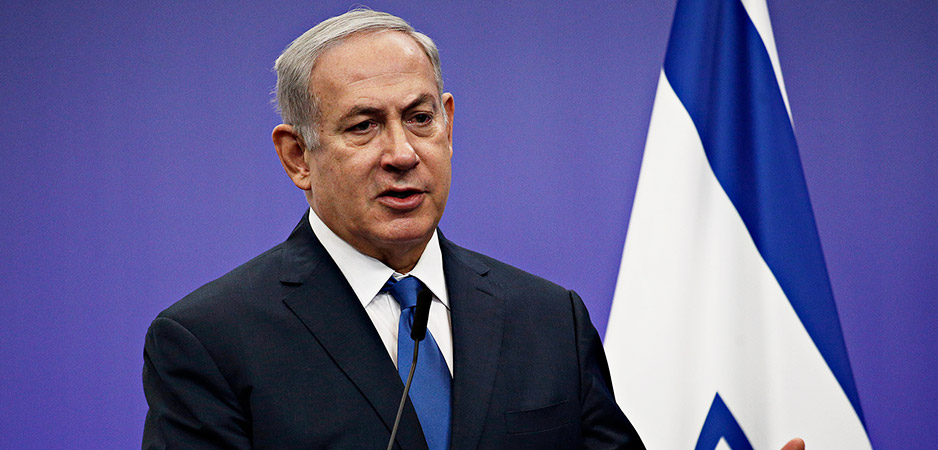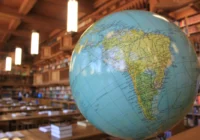In March, Israeli Prime Minister Netanyahu was unable to achieve a parliamentary majority in the Knesset after a fourth Israeli election in two years. As a result, he needed a national crisis to prevent the establishment of an alternative government by the opposition. Such a coalition would include right, centrist and left-wing parties, presenting a threat to Netanyahu’s premiership.
The last crisis in 2020 was the COVID-19 pandemic, which caused opposition leader Benny Gantz to cave in and agree to form a national unity government with Netanyahu. Now, Netanyahu has a new national emergency with the conflict in Gaza. This has led Naftali Bennet, leader of the right-wing Yamina party, to abandon efforts to form an alternative government with Yair Lapid, head of the centrist Yesh Atid, the largest opposition in Israel. Yamina and Yesh Atid have attempted to combine with Gantz’s Blue and White, the left-wing Labor and Meretz parties, and the United Arab List to reach a 61-seat majority in the Knesset.
The Future of Jerusalem Matters to Us All
Netanyahu may not have planned the exact scenario of the current conflict with Hamas militants in Gaza, but his policies laid the foundation for it. First, he has refused to negotiate with the Palestinian Authority and its leader, Mahmoud Abbas, for a two-state solution to the Israeli-Palestinian conflict. Instead, Netanyahu has preferred to bolster divisions between the Palestinian factions of Hamas in Gaza and Fatah in the West Bank.
There is no chance that Netanyahu would order the Israel Defense Forces (IDF) to overthrow the Hamas government in Gaza. The prime minister wants the division amongst the Palestinians to continue. Netanyahu is content with having Qatar — which did not join the United Arab Emirates and Bahrain in recognizing Israel in 2020 — prop up Hamas’ rule in Gaza.
Evictions in Sheikh Jarrah
Other Israeli decisions connected to East Jerusalem and its Sheikh Jarrah neighborhood have led to the multiple crises now taking place.
The first spark that lit the flame was the decision by Israeli police to set up barricades toward the end of Ramadan, the Islamic holy month, at the Damascus Gate entrance to the Old City. Since that is a place where many young Palestinians gather in the evening after breaking their fasts, it led to anger and protest — some violent. Kobi Shabtai, the novice police commissioner, falsely claimed this was a longstanding policy to prevent crowding. He later lifted the ban.
This was followed by clashes in East Jerusalem inside a compound known to Jews as the Temple Mount and to Muslims as the Haram al-Sharif. Israeli police made another major mistake of firing stun grenades into Al-Aqsa Mosque, which is inside the Temple Mount/Haram al-Sharif. This led to outrage amongst Palestinians in East Jerusalem and the West Bank and Israeli-Arab citizens in Israel.
The second spark was due to right-wing Israeli extremists attempting to evict Palestinians from their homes in Sheikh Jarrah to make way for Jewish settlers. These Palestinian families became refugees in the 1948 Arab-Israeli war and were relocated to Sheikh Jarrah in 1956 after the Jordanian government, which controlled East Jerusalem at the time, built homes for them.
An extremely unfair law permits Israelis to try to reclaim property in East Jerusalem that was held by Jews before 1948. Yet Palestinians are not allowed to do the same with property they once owned in West Jerusalem. A hearing over the legality of the eviction attempts was due to be heard by the Israeli Supreme Court on May 10. The case has since been postponed for a month at the request of Attorney General Avichai Mandelblit.
With the events on the Temple Mount/Haram al-Sharif and the evictions in the Sheikh Jarrah neighborhood, the focus is on Netanyahu. To reach a majority in the Knesset, the prime minister encouraged the newly-elected Itamar Ben-Gvir — a follower of the extreme right-wing Rabbi Meir Kahane — and his Jewish Power Party to join forces with Bezalel Smotrich and his Religious Zionism, a nationalist, far-right party.
Ben-Gvir has been accused by the Israeli police chief of supporting young, right-wing extremists who attacked Palestinians in the Old City and in Sheikh Jarrah last week. “The person who is responsible for this intifada [uprising] is Itamar Ben Gvir. It started with the Lehava protest at Damascus Gate,” Shabtai said. “It continued with provocations in Sheikh Jarrah, and now he is moving around with Lehava activists.”
To his credit, even Netanyahu realized that the situation in Jerusalem was at risk of turning ugly. This year, just before what Israelis call the “Jerusalem Day Flag March,” marking the capture of the Old City and East Jerusalem in the 1967 Arab-Israeli War, Palestinians marked Laylat al-Qadr (night of decree), one of the holiest nights in Ramadan and the Islamic calendar. On May 10, thousands of young, right-wing Israelis were scheduled to march through Damascus Gate while taunting Palestinians in the Muslim Quarter of the Old City. Instead, it was rerouted via the Jaffa Gate adjacent to West Jerusalem.
Uncertainty for Hamas
This is where Hamas, which controls the Gaza Strip, comes into the picture. Hamas has been losing popularity in Gaza because of the dire conditions that Palestinian face there. In May and July, Palestinians were due to vote in legislative and presidential elections, respectively. While the elections have been postponed by President Abbas, who blamed Israel for uncertainty about whether Palestinian elections could take place in East Jerusalem, the West Bank and Gaza, the Hamas leadership was concerned.
On the one hand, it was predicted that Hamas might benefit from the weakness of the Fatah-controlled Palestinian Authority. Fatah has split into three groups for the elections, with Abbas part of the main one. On the other hand, Nasser al-Qudwa’s decision to run a separate list from Fatah poses a risk to Hamas. Qudwa, a senior diplomat who was sacked by Fatah in March, is the nephew of the late Palestinian leader Yasser Arafat. Qudwa represents a group led by Marwan Barghouti, a popular Fatah leader who is currently in an Israeli prison and is dubbed “Palestine’s Nelson Mandela,” while a third Fatah list is led by Mohammed Dahlan, an exiled rival of Abbas who is originally from Gaza.
An election for the Palestinians presents uncertainty for both Fatah and Hamas. Therefore, Hamas decided to present itself as the guardian of Jerusalem and of Al-Aqsa Mosque, hoping to take advantage of Palestinian disappointment at the postponement of elections by Abbas. Hamas leaders threatened Israel by saying unless its police forces withdrew from the Temple Mount/Haram al-Sharif compound and from the Sheikh Jarrah neighborhood, they would fire rockets on Jerusalem. Most observers thought this was a bluff, since it was assumed that Hamas wouldn’t shoot missiles at Jerusalem out of fear they might hit Al-Aqsa Mosque, the third holiest site in Islam.
It turns out that they weren’t bluffing. Ever since this round of deadly clashes began on May 10, Hamas militants have kept their word. A few nights ago, Hamas said it would fire rockets toward Tel Aviv in retaliation for IDF actions during the day. Minutes after midnight, the anti-missile alert sirens sounded and 2 million people in the greater Tel Aviv area headed into bomb shelters, including my family and neighbors.
By firing indiscriminately at a civilian population, Hamas is committing war crimes. Any government facing such a situation would feel compelled to respond. Of course, since the Israeli army is far more powerful than Hamas forces — and because Gaza is densely populated — there are many more Palestinian casualties than Israeli. At the weekend, Haaretz, an Israeli daily, published an article with the headline: “Israeli killed by rocket; IDF destroys media offices, kills families in Gaza.” The Israeli died on May 15 after a “barrage of rocket fire targeted Tel Aviv.” On the same day, Hamas said “it had fired dozens of rockets at central Israel in response to the killing of eight children and two women, all members of the same family, in a [strike] on the Al-Shate refugee camp in the northern Gaza Strip.” As the exchange of fire enters its second week, the death toll at the time of publishing stands at 212 in Gaza, including 61 children. In Israel, 10 people have died, including a 10-year-old Israeli-Arab girl.
By evicting families and building settlements on occupied Palestinian territory, Israel is also committing war crimes. This includes Israeli attempts to displace Palestinian families in Sheikh Jarrah. Israel’s disproportionate use of military force to defend itself — though justifiably — against repeated rocket fire is also problematic.
Violence on the Street
The worst byproduct of the current situation is perhaps the inter-communal conflict in Israel that has evolved as a result of the broader crisis. This is particularly in the mixed Jewish and Arab cities of Acre, Lod, Ramla, Jaffa and other locations such as Jerusalem.
This is tragic given the progress that has been made in recent years with Jewish-Arab cooperation and partnership inside Israel. To tackle the COVID-19 pandemic, Israeli-Arab medical personnel have taken on a central role. In football, Israeli-Arabs have played a prominent part. In politics, the Joint List, an alliance of Arab-majority parties, recommended Gantz for the role of prime minister in 2020. Now, the United Arab List led by Mansour Abbas could play a decisive role in the possible formation of an alternative Israeli government.
All of this has been undermined in a few violent weeks. It was as if we suddenly had a throwback to the murderous intercommunal strife that occurred in 1921, 1929 and 1936 in the British Mandate of Palestine before the state of Israel was created. Fortunately, there is a strong foundation for the revival and continuation of Jewish-Arab cooperation within Israel. Young people in Standing Together, a Jewish-Arab grassroots movement, have taken to the streets in protest. Mayors of joint and neighboring municipalities have also been active in trying to heal the social wounds.
Time for a Plan
Israelis and Palestinians will need to find the strength as societies to deal with the current crisis and to develop paths toward internal solidarity and a cross-border resolution of the conflict. It is equally important that the international community takes an active role. World powers have played a major role in the region in modern times — from the Ottoman Empire, the British Mandate of Palestine and the 1917 Balfour Declaration to the 1947 UN General Assembly resolution to create two states, Arab and Jewish. Now, they cannot stand aside and watch. They must play a part in defusing the current violence and creating the foundations for a more fundamental resolution of the Israeli-Palestinian conflict.
In Washington, the Biden administration, which has a lot on its plate domestically, had hoped it could ignore the Middle East conflict. That is clearly not working. US President Joe Biden has even delayed designating a new American ambassador to Israel. He has also not yet reopened a US consulate in Jerusalem to serve as an address for American communication with the Palestinians. These are two simple steps that should urgently be taken.
In addition, the Americans can revive the role of the Middle East Quartet — which is made up of the US, the European Union, Russia and the United Nations — in seeking to advance a resolution of the conflict. The Arab world can bring back and activate the Arab Peace Initiative. Proposed by Saudi Arabia and confirmed at the Arab League’s 2002 summit in Beirut, the plan offers Israel recognition, peace and normalized relations with the Arab world, backed by all Muslim-majority countries. In exchange, a Palestinian state would be established in the West Bank and Gaza, with East Jerusalem as its capital, alongside the state of Israel, with small, mutually agreed-upon land swaps.
When it comes to Jerusalem, it would perhaps be best to return to the original partition plan of 1947. According to the UN General Assembly’s decision, a Jewish state and an Arab state were to be established, while Jerusalem was to be an international city. While the situation today is completely different from that plan 74 years ago, the conflict around the Old City and the Temple Mount/Haram al-Sharif — which contains the sites considered holy in Judaism, Christianity and Islam — could be neutralized by making it an area shared by all peoples. Jerusalem would be what Jordan’s late King Hussein called “God’s city.”
The views expressed in this article are the author’s own and do not necessarily reflect Fair Observer’s editorial policy.
Support Fair Observer
We rely on your support for our independence, diversity and quality.
For more than 10 years, Fair Observer has been free, fair and independent. No billionaire owns us, no advertisers control us. We are a reader-supported nonprofit. Unlike many other publications, we keep our content free for readers regardless of where they live or whether they can afford to pay. We have no paywalls and no ads.
In the post-truth era of fake news, echo chambers and filter bubbles, we publish a plurality of perspectives from around the world. Anyone can publish with us, but everyone goes through a rigorous editorial process. So, you get fact-checked, well-reasoned content instead of noise.
We publish 2,500+ voices from 90+ countries. We also conduct education and training programs
on subjects ranging from digital media and journalism to writing and critical thinking. This
doesn’t come cheap. Servers, editors, trainers and web developers cost
money.
Please consider supporting us on a regular basis as a recurring donor or a
sustaining member.
Will you support FO’s journalism?
We rely on your support for our independence, diversity and quality.






